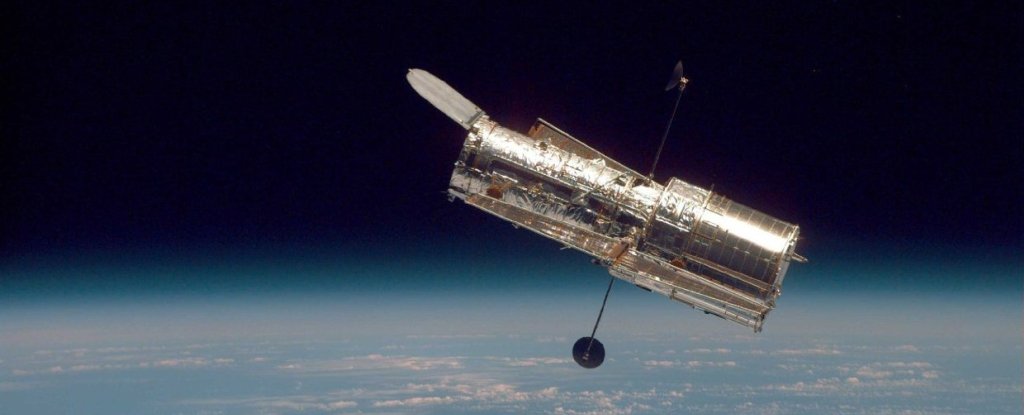
Posted on 06/21/2021 10:29:03 AM PDT by Red Badger

The Hubble Space Telescope is currently offline.
On Sunday 13 June, the telescope's payload computer went offline, and engineers here on Earth are currently performing operations to get it up and running again.
The payload computer, as you might expect, is vital to Hubble's continued science operations. It's the 'brains' of the instrument, coordinating and controlling the various instruments with which Hubble is equipped. It also monitors the telescope for issues.
Initially, NASA engineers speculated that the cause of the halt was a degrading memory module. An attempt to restart the computer failed, so, on Wednesday 16 June, the Hubble operations team attempted to switch to a backup memory module.
This, too, proved futile.
"The command to initiate the backup module failed to complete," NASA explained in a blog post.
"Another attempt was conducted on both modules Thursday evening to obtain more diagnostic information while again trying to bring those memory modules online. However, those attempts were not successful."
It's not entirely unexpected that Hubble might be experiencing a few aches and pains. The space telescope, launched in 1990, has been operating for over 30 years at this point, undergoing several mission extensions. Its most recent (and final) service mission took place in 2009, and it's only a matter of time before something wears out beyond repair.
In 2018, Hubble underwent a gyroscope failure; in that instance, engineers were able to fix the problem basically by giving the telescope a space jiggle. Earlier this year, the telescope had to be put into safe mode after a software error.
When designing an instrument like Hubble, to be operated remotely and difficult to access physically, failsafes are crucial.
So, in this case, the situation is not lost either. The payload computer (a NASA Standard Spacecraft Computer-1, or NSSC-1) has four 64-bit memory modules to draw on. It only uses one at any given time; the other three are backups. In addition, there is a second backup payload computer on-board that can be deployed in the event of a major problem.
"The operations team will be running tests and collecting more information on the system to further isolate the problem," NASA wrote. "The science instruments will remain in a safe mode state until the issue is resolved. The telescope itself and science instruments remain in good health."
Hubble is therefore very likely to live on, to continue taking us to the stars. Not forever; eventually, its parts will wear out, or its orbit will decay, and engineers will need to bring it home, for a fittingly glorious death burning up on atmospheric entry.
But there is no planned end date for the Hubble mission, and we hope we will enjoy its contributions to science for at least a few more years yet.
It uses an Intel 286 CPU
I was wrong, it was upgraded to a Intel 486 cpu in 1999
286x 386 and 486 cpus were before the Pentium cpus
Space is a very harsh environment.
The gamma rays and neutrons from the Sun and cosmic rays from background space radiation play hell on semiconductors.
Yes, and damage builds up over time..................
Initially it used a 386, but it and its 387 co-processor were replaced by a 25 MHz Intel-based 80486 processor system in 1999. There are also a number of 1802 8-bit CPUs onboard that control subsystems. Rad-hardened versions have a long history of reliability in space.
Once upon a time I was building test transistors for rad hard research. They had a Co-60 source to test them. So much radiation that the PFA (Teflon) holders would turn brown under the onslaught.
One night a black widow took it into her head to spin a web on the sample.
Dead the next morning, of course. When they touched her with a pair of tweezers, she crumbled to dust!
There were rad-hard versions of the 1802.
Many a geek earned their wings coding the 1802.
The problems of maintaining remote embedded systems like the Hubble are similar to maintaining implanted medical devices. They are expensive and hard to access physically so you design in failsafes, watchdogs and massive redundancy where you can. OCD afflicted coders are the sort that are needed for such work... they cannot abide any possibility of a failure and cover every contingency.
I believe Hubble is functioning long after its expected/predicted end-of-life.
Not to worry, the new Chinese space station will have a separate telescope component with a wider field of view then the old Hubble - the Hubble will become obsolescent and not worth fixing, since telescope time can be bought cheaper than launching another optical scope.
China and the CCP leading the way in space!
America under Democrat control leading the way in social justice and gender equality!
Everyone else rolling in the isles.
It is WAY past time to get Webb up and into space, and, retire Hubble. If someone wants to go up and salvage it....great! Otherwise, put it into a reentry orbit and let it die an honorable death.
Has anybody called Howard Wallowitz?
Did they try turning it off, then turning it back on again?
HAL wants a raise
That had a separate math coprocessor
His stuff only works on meatloaf.
It was a special rad-hardened version.
I was on the validation team at Intel at that time.
I do!
They should try both hitting Ctrl then Alt-Delete, then try doing Ctrl-alt, then delete.
COVID HAS NOW MUTATED. IT IS KILLING SPACE TELESCOPES.
Disclaimer: Opinions posted on Free Republic are those of the individual posters and do not necessarily represent the opinion of Free Republic or its management. All materials posted herein are protected by copyright law and the exemption for fair use of copyrighted works.